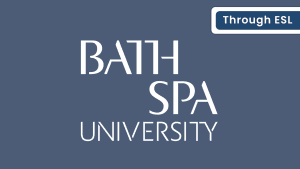BSc (Hons) Mental Health and Wellbeing with Foundation Year
Intake:
Location:
Duration:
Fees:
This course is designed for individuals who are driven to understand the complexities of mental health and promote human flourishing. It is the ideal pathway if you do not currently meet the entry requirements for a standard three-year degree, are returning to education after a break, or simply wish to build a stronger academic and subject-specific foundation before embarking on undergraduate study. We welcome your life experience and believe your unique perspective will enrich our learning community.
Across four years, you will journey from foundational academic skills to an in-depth, critical understanding of mental health. The curriculum integrates psychological theory, sociological perspectives, and public health principles to give you a truly holistic view. You will explore everything from the biological basis of mood and the impact of social inequality on wellbeing, to the practical application of therapeutic approaches like mindfulness and cognitive behavioural techniques. Learning is not confined to the lecture theatre; you will engage with real-world case studies, design community wellbeing initiatives in workshops, and develop the analytical skills to critique current health policies.
Upon graduation, you will be equipped for a diverse range of careers in the NHS, charities, local government, and the private sector. Roles such as a Wellbeing Practitioner, Mental Health Advocate, Community Support Officer, or Policy Advisor will be within your reach. Many graduates also progress to further study, pursuing master’s degrees in Social Work, Public Health, Counselling, or undertaking specialised psychotherapy training. In a world that is finally recognising the importance of mental health, this degree provides the relevant, compassionate expertise that society urgently needs.
Foundation Year: Building Your Confidence and Knowledge
This introductory year is designed to equip you with the essential academic skills and subject knowledge needed to succeed at degree level.
-
Academic and Research Skills: Learn how to write compelling essays, research effectively, reference correctly, and deliver confident presentations – the core skills for university success.
-
Introduction to Psychology and Sociology: Discover the key thinkers and foundational theories that explain how individuals and societies function, providing a crucial context for understanding health.
-
Foundations of Health and Social Care: Explore the structure and key challenges of the UK’s health and social care systems, understanding the real-world environment you could one day work in.
-
Communication and Interpersonal Skills: Develop vital active listening, empathy, and professional communication techniques through practical workshops and role-play scenarios.
-
Human Biology and Lifespan Development: Gain a basic understanding of human physiology and how our physical, cognitive, and emotional needs change from infancy to old age.
-
Inquiry-Based Learning Project: Undertake a guided research project on a health topic of your choice, putting your new academic skills into practice in a supportive environment.
Year 1: The Core Principles of Mental Health
Your first year of degree-level study establishes the fundamental concepts that underpin the rest of the programme.
-
Fundamentals of Mental Health and Wellbeing: A core introduction to key definitions, concepts of normality, and the distinction between mental health and mental illness.
-
Introduction to Psychological Theories: Go beyond the basics to explore the major schools of thought—from psychodynamic to cognitive-behavioural—and how they explain human experience.
-
Sociology of Health and Illness: Analyse how factors like class, gender, and ethnicity shape health outcomes and access to care within our society.
-
Lifespan Development: Examine the psychological journey from childhood and adolescence through to adulthood and later life, focusing on key mental health challenges at each stage.
-
Professional Practice and Ethics: Investigate the ethical dilemmas and professional responsibilities of working with vulnerable people, learning to navigate complex situations with integrity.
-
Research Methods for Health: Develop the ability to read, critique, and understand scientific research, an essential skill for evidence-based practice.
Year 2: Applying Knowledge and Specialising
You will deepen your expertise in core areas and begin to tailor your studies to your career interests through a choice of optional modules.
Core Modules:
-
Applied Therapeutic Approaches: Gain a practical understanding of the theory and application of key interventions like Cognitive Behavioural Therapy (CBT), Mindfulness, and Person-Centred approaches.
-
Public Mental Health: Move beyond individual support to explore community-wide strategies, prevention campaigns, and government policies designed to improve the nation’s mental wellbeing.
Optional Modules (Choose two):
-
Mental Health in Children and Young People: Focus on the unique challenges facing children and adolescents, exploring issues such as school-based anxiety, developmental disorders, and early intervention strategies.
-
Addiction and Behavioural Change: Investigate the psychology of addiction (from substance misuse to gambling) and learn about established models for supporting behavioural change.
-
Mental Health and the Workplace: Explore the growing field of organisational wellbeing, including stress management, creating mentally healthy work cultures, and supporting employees.
-
Digital Health and Wellbeing: Critically evaluate the role of technology, from mental health apps to online therapy, in modern healthcare delivery.
Year 3: Independent Research and Advanced Topics
Your final year focuses on high-level analysis and a major independent project, demonstrating your mastery of the subject.
Core Modules:
-
Dissertation: Plan and execute a major research project on a mental health topic you are passionate about, working one-on-one with a dedicated academic supervisor. This is your chance to make an original contribution to the field.
-
Complex Mental Health Conditions: Develop a nuanced understanding of conditions such as psychosis, personality disorders, and complex trauma, with a focus on recovery-oriented models and stigma reduction.
Optional Modules (Choose two):
-
Global Mental Health: Compare mental health systems and cultural understandings of distress around the world, analysing the impact of globalisation, conflict, and poverty on wellbeing.
-
Counselling Skills in Practice: A practical module focusing on advanced communication skills, building therapeutic relationships, and self-reflection. (Note: This is not a professional qualification to practise as a counsellor).
-
Trauma-Informed Care: Learn how to apply the principles of trauma-informed practice across different settings, creating environments that are safe, supportive, and empowering for service users.
-
Arts, Creativity, and Wellbeing: Explore the evidence behind therapeutic uses of the arts, from music and art therapy to creative writing, as powerful tools for promoting mental health.
Funding Your Studies with Student Finance
You may be eligible to receive financial support from the UK Government to help cover your tuition fees and living expenses while studying.
✔ Tuition Fee Loan – Covers 100% of your tuition fees, paid directly to the university, so you can focus on your studies without financial stress.
✔ Maintenance Loan – Helps with living costs, including rent, food, and travel, making student life more manageable.
At Active Care Education, we simplify the process for you! Our expert team will guide you step-by-step, ensuring you secure the funding you’re entitled to. If you’re a British Citizen, Refugee, have Indefinite Leave to Remain, or hold EU Pre-Settlement Status (2.5 – 3 years), you could qualify for this government-backed funding.
Why wait? Start your journey towards a degree without upfront costs! Contact Active Care Education today for free assistance.
Book Your Free Online Consultation!
FAQ
OUR PARTNERS
Showcasing our partnerships with leading universities to help you achieve your academic goals.





